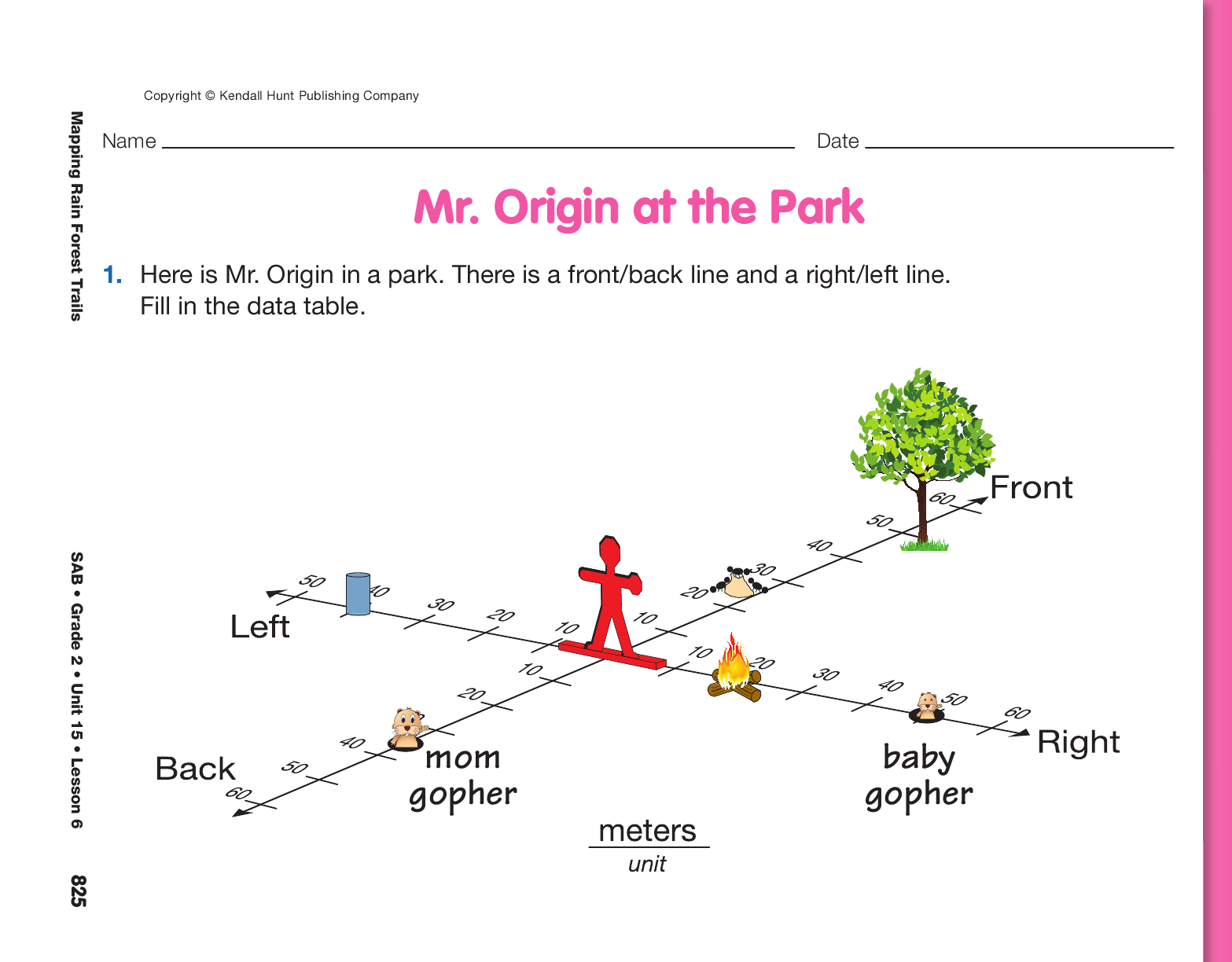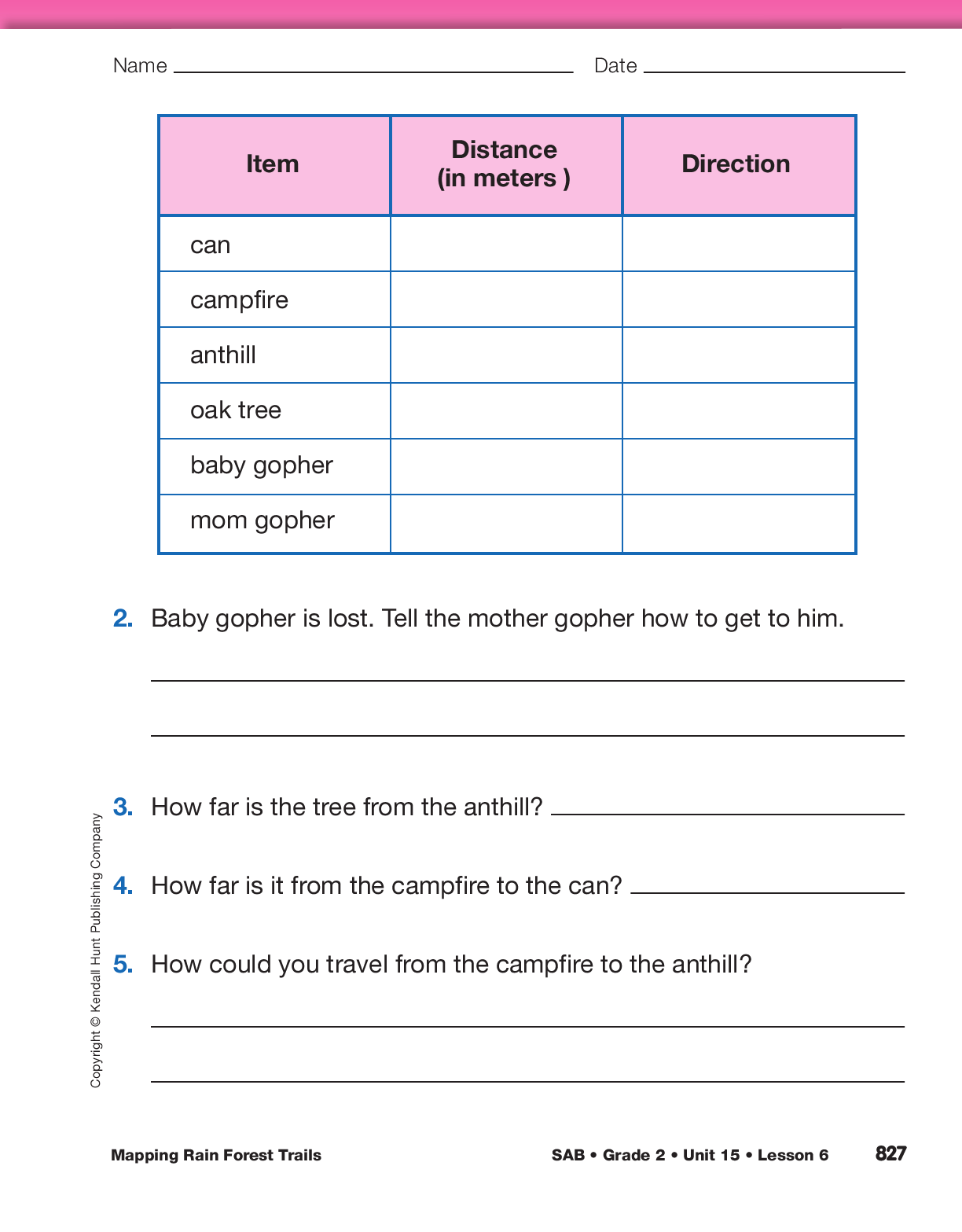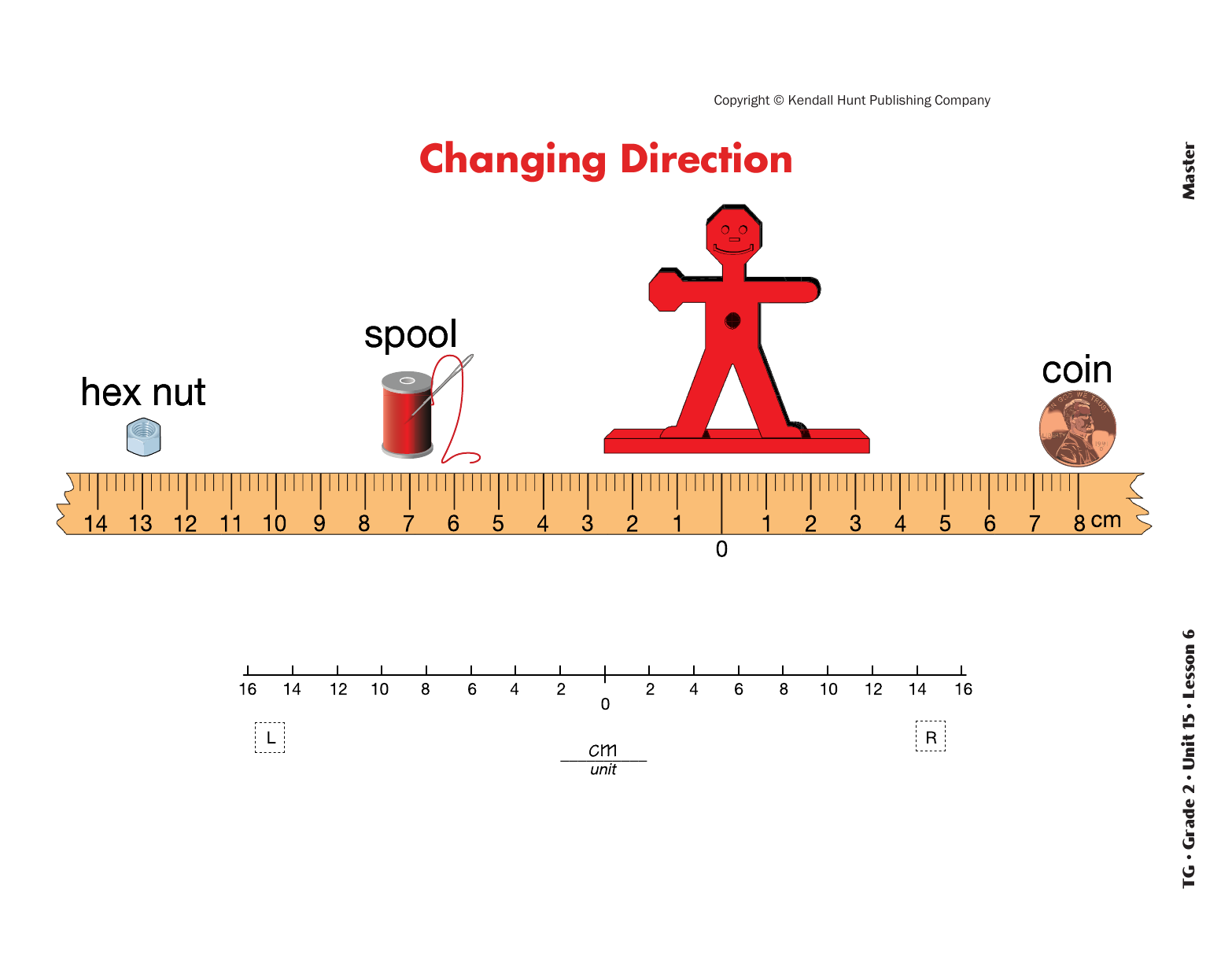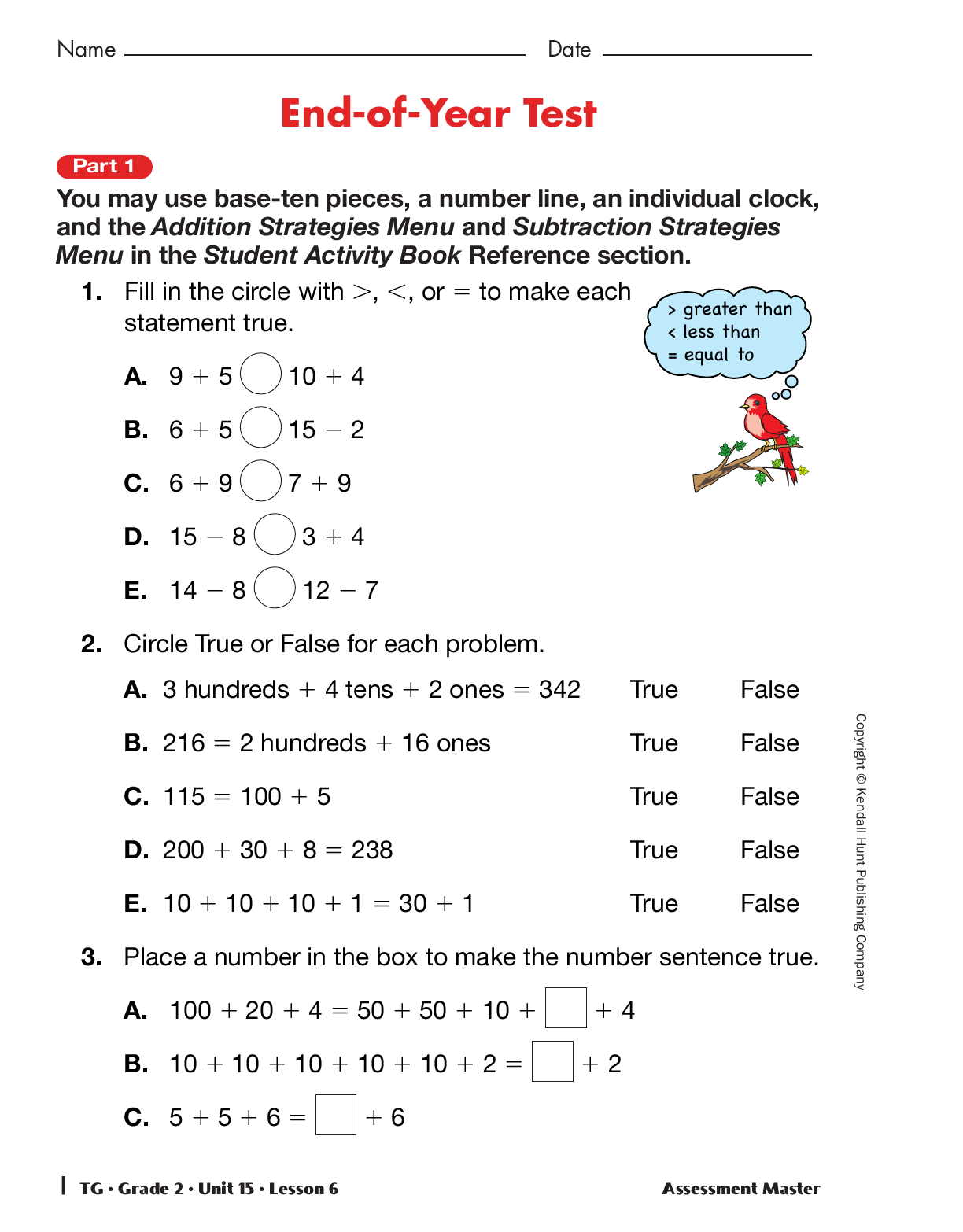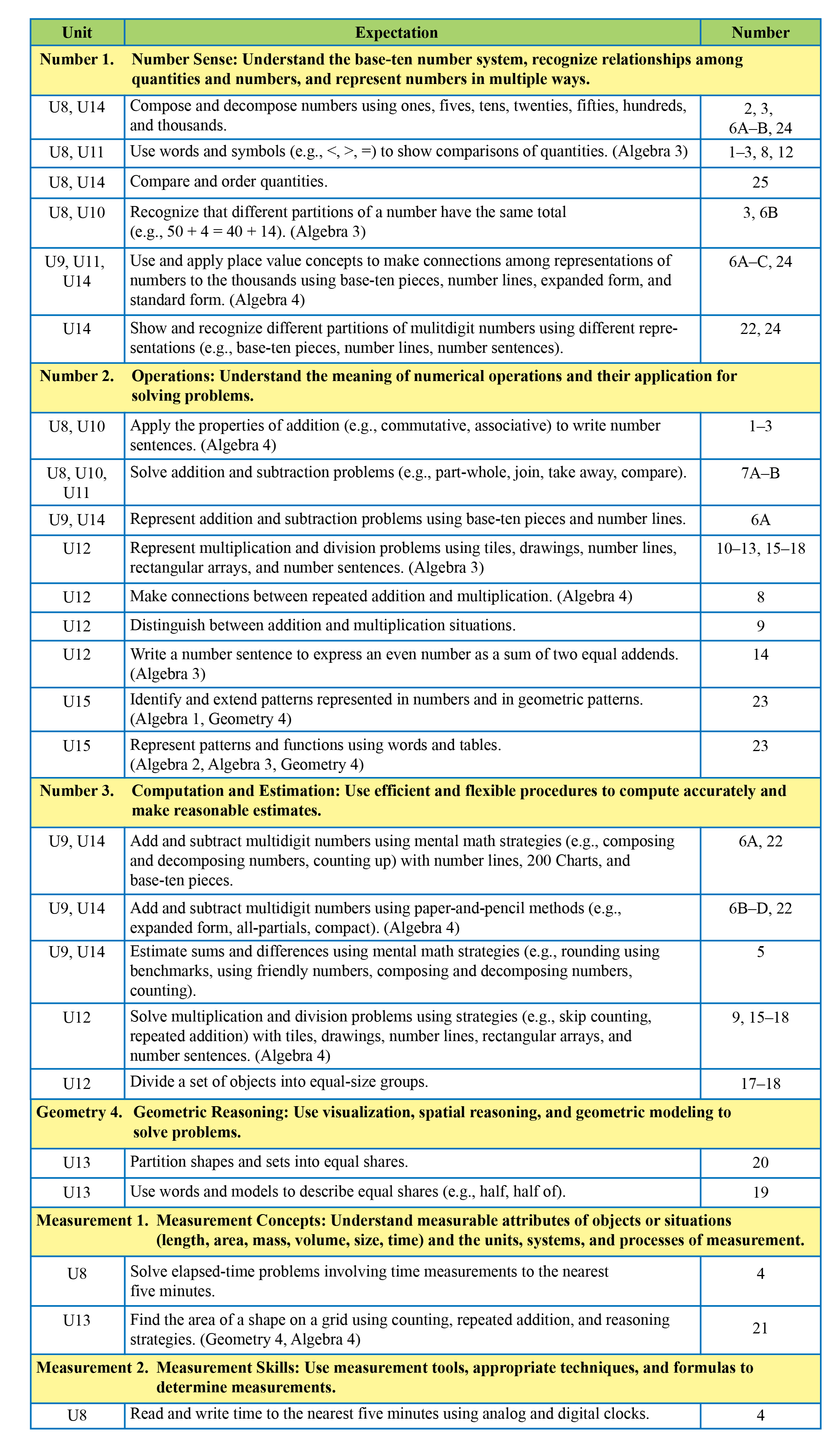Display the top half of the Changing Direction
Master. Tell students that this drawing shows the
location of a hex nut, a spool, and a coin. Ask students
to carefully study the drawing.
- What do you notice about the Mr. Origin in this
drawing? Which side of Mr. Origin do you see? (He is facing the front so you see his face and his button.)
- Name an object that is to the right of Mr. Origin.
(Possible responses: the hex nut or the spool)
- What object is to the left of Mr. Origin? (the coin)
- What would someone need to know about
Mr. Origin to find the exact location of the coin?
(Possible response: They would need to know
which way Mr. Origin is facing so they know
which way is right and which way is left.)
- How could you describe the location of the coin so
someone else could find it on the map? (The coin
is 8 centimeters to the left of Mr. Origin.)
- If you were to turn Mr. Origin around so you were
now looking at his back, what would happen to the
location of the coin? (Possible response: Now the
coin would be at Mr. Origin’s right instead of his
left. So the coin would be 8 centimeters to
Mr. Origin’s right.)

Some students may have difficulty understanding how the
direction of the location will change when you rotate
Mr. Origin. If this occurs, have the students place a Mr. Origin
on their desks so they can see his front. Ask them to place a
pencil to Mr. Origin’s right. Then have them rotate Mr. Origin
so they are now looking at his back. Ask them to observe
how the direction from Mr. Origin changes even though they
did not move the pencil. Repeat this several times with
different objects until students become more comfortable
with this concept.
Uncover the bottom half of the display so students
can now see both the drawing at the top and the map
on the bottom of the page.
Tell students to look carefully
at the map at the bottom of the page and then
ask:
- If you were to place Mr. Origin on this line, would
you see his face or his back? Explain how you
know. (You would see his back. Possible
response: His right hand has to be on the same
side as the right on the map. When you do this,
you will be looking at his back.)
- If you wanted to show the location of the spool on
this line where would you place it? (You would
place it 7 centimeters to the right.)
- There is not a 7 on this line, so where would the
spool be placed? (The spool would be halfway
between the 6 and 8 on the side that says right.)
Draw an arrow showing where the spool should be
placed on the line. Continue asking similar questions
until students have described where to place the hex
nut and the coin on the line. See Figure 4.
Ask students to complete the Mr. Origin at the Park pages in the Student Activity Book independently.
Use the Mr. Origin at the Park pages with the Feedback Box in
the Student Activity Book to assess students’ abilities to
describe the location of an object relative to an origin using
direction and distance [E3]; measure length using standard
units [E4]; make a table [E5]; read a table [E6]; use a table to
solve problems about a data set [E7]; and use labels [MPE6].
Use the End-of-Year Test
to assess the expectations in Units 8–15. See Figure 5.















